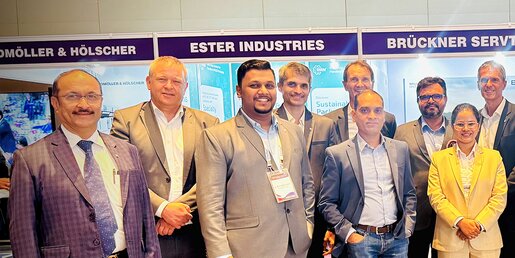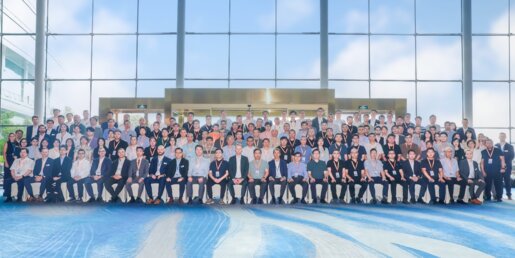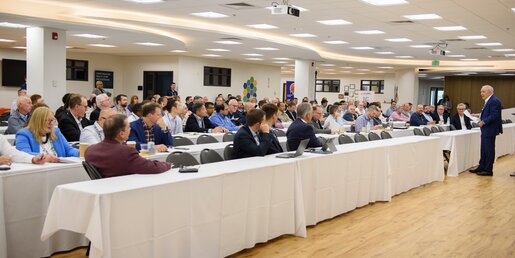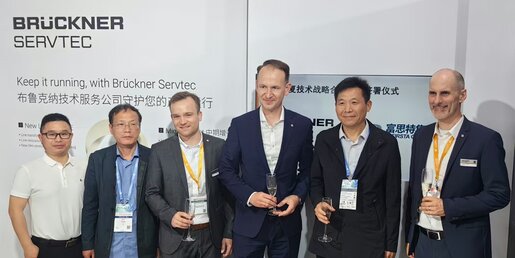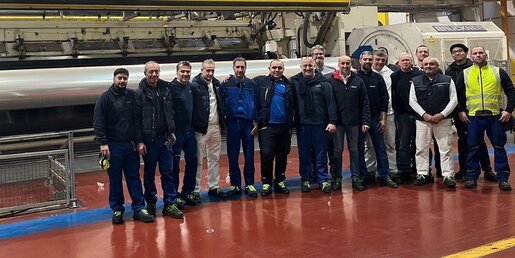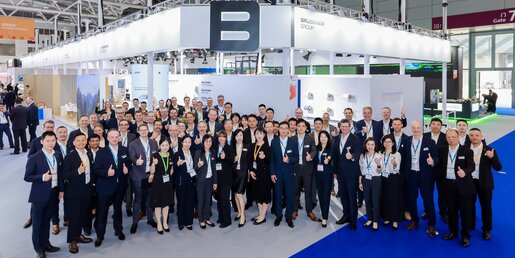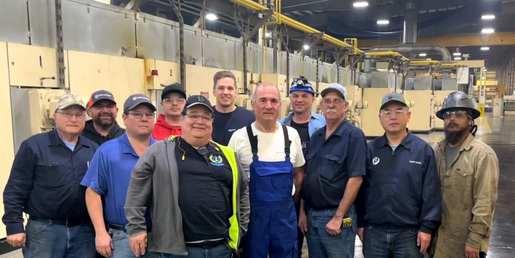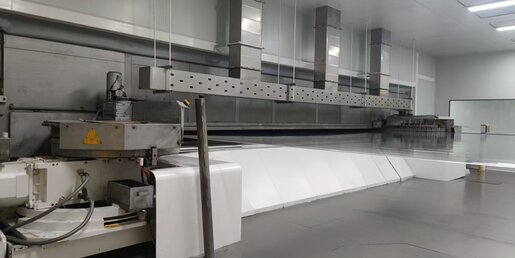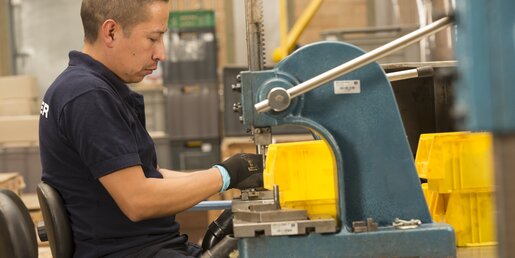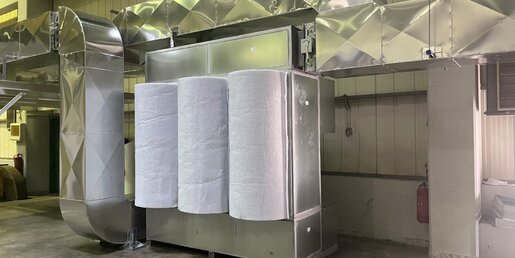"The big digital project of the future is predictive maintenance"
17 Dec 2021
Way2K: Industry interviews in the lead-up to the K 2022 fair | Interview of the VDMA with Markus Gschwandtner, CEO of Brückner Servtec
Mr. Gschwandtner, your company has to ensure that Brückner film lines run trouble-free at customer sites. What role does digitalisation play in this operation?
Digitalisation is of crucial importance to us as the interface between Brückner and the customer, which is why we continuously drive forward integration and exchange of data and information. To this end, we have set up a digital service platform where the customer can access our services online. Let me give you an example: the delivery scope of a plant includes extensive documentation. Up until now, it has always consisted of many folders. If the customer wanted some information, it could take a while to find the relevant passages. On our service platform, this documentation is now available online at any time. The service technician standing in front of the machine then has easy and quick access to the necessary information via a tablet or smartphone.
Consequently, access to information is becoming easier. What other advantages are there?
The fundamental advantages are transparency and simplicity. Here is another example: we install about 30,000 parts in each machine. Many of these are labelled with a QR code, including parts from suppliers. It identifies each component from the beginning of its life with Brückner until it is used at the customer's site. All customers need to do is scan the part they want to replace; both we and the customer then know exactly which part is concerned and when it will be available. This allows us to react much more quickly and, if necessary, to fix a problem much sooner.
Many companies hesitate when it comes to handing over data. How do you convince them?
We have to ensure that the data is truly secure. At our company, there are no leaks. We are TÜV-certified. But that assurance alone isn’t enough to convince a customer; the decisive factor is that we need to make sure the customer sees the enormous advantages. The benefits of data integration are the greatest where corporate boundaries are crossed. Over 70 percent of our customers are already on our digital platform. Basically, it’s the same principle as a smartphone: you see what’s possible with it, and soon after, you find you can't do without it.
What is the next big digitalisation topic?
The big digital project of the future is predictive maintenance. When one of our production lines comes to a standstill, the customer loses around 10,000 euros on average in revenue, and that figure is per hour. It is therefore important to keep these stoppages as brief as possible, but in any case, to be able to predict them. We are already well on the way to doing that, installing sensors, for instance, to assess the status of critical components. In the future, we will also use artificial intelligence to predict when a part might break or when maintenance should be carried out. The goal is to increase the ability to plan necessary maintenance work ahead, because that will save considerable costs and increase the production uptime.
Will resources be conserved?
Predictive maintenance helps make utilisation of the production line and also all subsequent steps more sustainable. For example, if maintenance is carried out without it actually being necessary at the time, spare parts will also be replaced needlessly early. So, you will need a lot more material over the life cycle of a plant. But resources are also conserved if, for example, we install more energy-efficient motors during upgrades and modifications. The goal must be to use as few resources as possible, be it material, energy, or raw materials. Only through digitalisation can we achieve the transparency necessary for this purpose.
How are digitalisation and the circular economy interrelated?
Without digitalisation, it would be very difficult to enable a circular economy. With it, however, we can for example label products during the production process. Then machines can recognise later in the waste collection cycle what the packaging film, is actually made of. It is then possible to identify that a piece of packaging film is made of polyethylene and does not contain more than five percent different and foreign materials. This means it is fully recyclable. But the production lines have to be prepared. Such mono-material structures require numerous modifications to the plants. Only then can a high-quality plastic packaging film, which is ready for circular economy, be guaranteed.
What’s the next phase in the circular economy?
With regard to packaging films, circular economy can only work if we aim for mono-material structures. But it is also important to have a better collection system for plastics, comparable to that for bottles. It must be made as simple as possible for the consumer. Next, the plastic has to be separated so that you get single-source plastics. The next step is single-source recycling. But then there is the question of what to use the recyclate for. Turning a packaging film back into a packaging film remains a vision for the time being but turning recycled packaging film into good products that can be used in injection moulding, for example, would make sense.
What are the major challenges?
The technical challenges will be overcome. It will be more difficult to implement a viable collection system. And then it is important that the circular economy is established all over the world. A lot is collected in Germany or Austria, but not so much yet elsewhere in Europe and in many other parts of the world. The quantities are still too small for the circular economy to be economically viable. That has to change, too.
Video statement by Markus Gschwandtner: https://vimeo.com/654958137
Industry interviews on the road to the K:
The world is facing major challenges: Climate change must be fought; the environment must be protected, and resources must be conserved. It is also important to make good use of the opportunities offered by digitalisation. The plastics industry has a key role in this process because plastics are ubiquitous in the world.
Climate protection, digitalisation and the circular economy are therefore also the three major topics at K 2022, the world's leading trade fair for the plastics industry. To get in the mood for the industry meeting in autumn 2022, the VDMA is letting representatives of the plastics machinery industry and all other stakeholders in the sector have their say through weekly interviews.
VDMA Plastics and Rubber Machinery
More than 200 companies are members of the trade association, covering over 90 percent of the industry's production in Germany. Ten percent of our member companies come from Austria, Switzerland and France. German member companies represent a turnover of 7 billion euros in core machinery and 10 billion euros including peripheral technology. Every fourth plastics machine manufactured worldwide comes from Germany in terms of value; the export quota is 70 percent. Ulrich Reifenhäuser, managing partner of Reifenhäuser GmbH & Co KG, is the chairman of the trade association.

